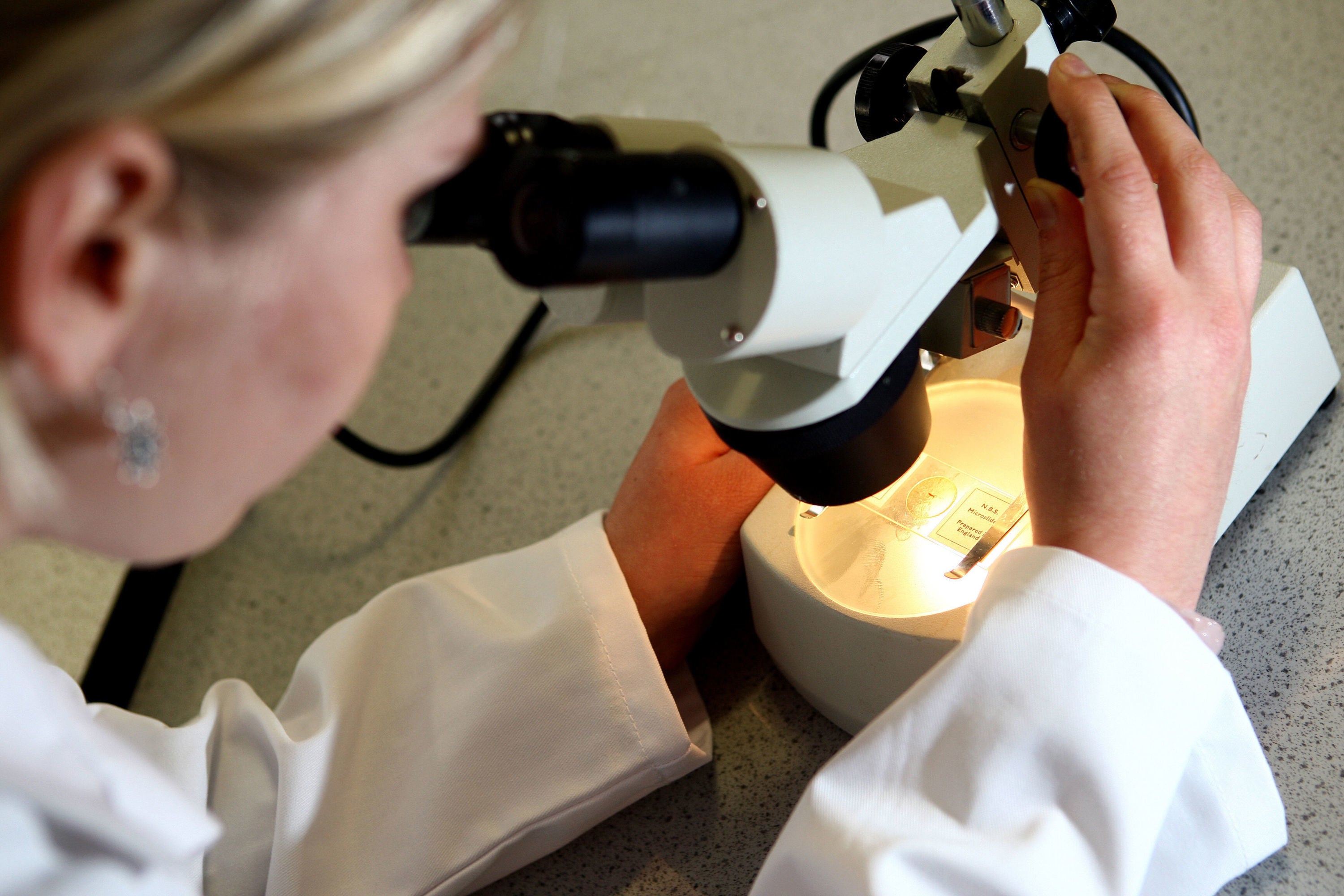New drug combination targets prostate cancer on two fronts, study finds
A ‘promising’ new treatment option for patients with particularly aggressive prostate cancers, researchers say

Patients with particularly aggressive prostate cancers can be treated more effectively by a combination of existing targeted medicine and an experimental new drug, new research suggests.
Researchers looked at the efficacy of the targeted hormone drug abiraterone together with a new drug called ipatasertib in patients with advanced prostate cancer who had received no prior treatment.
Abiraterone is a standard medicine taken by many people with advanced prostate cancer. The study, published in The Lancet, found using both medications extended the time before the cancer progressed and spread further.
The drug combination works by simultaneously switching off two powerful growth signals that fuel prostate cancer.
The international phase three trial was led by The Institute of Cancer Research, London (ICR), and The Royal Marsden NHS Foundation Trust and funded by Roche.
More than 1,100 patients were involved across 200 sites in 26 countries in the trial, many of who – 521 – had a tumour lacking a fully functioning gene known as PTEN, a commonly deleted tumour suppressor gene in cancer.
Researchers discovered that the drug combination of abiraterone and ipatasertib as a first-line treatment reduced the risk of death or cancer progression in those patients by 23 per cent compared with abiraterone alone.
Almost a fifth (19 per cent) of those taking the combination had a complete remission, meaning no sign of the disease was found. This compared with 6 per cent for those taking abiraterone only.
But researchers said longer follow-up will be needed before the combination can get regulatory approval or be accessed on the NHS.
Study leader Johann de Bono, professor of experimental cancer medicine at the ICR and consultant medical oncologist at The Royal Marsden NHS Foundation Trust, said: “We have shown that combining an existing and a new drug to attack cancer on two different fronts can keep men with prostate cancer healthier for longer.
“The findings offer a promising new treatment option for patients with a common and aggressive type of prostate cancer, and could eventually change clinical practice for these men.
“PTEN is one of the most commonly deleted genes in prostate cancer, so this study offers hope to many patients.”
Prostate cancer is the most common cancer in men in the UK, with more than 47,500 men diagnosed every year, according to Prostate Cancer UK.
Subscribe to Independent Premium to bookmark this article
Want to bookmark your favourite articles and stories to read or reference later? Start your Independent Premium subscription today.

Join our commenting forum
Join thought-provoking conversations, follow other Independent readers and see their replies
Comments